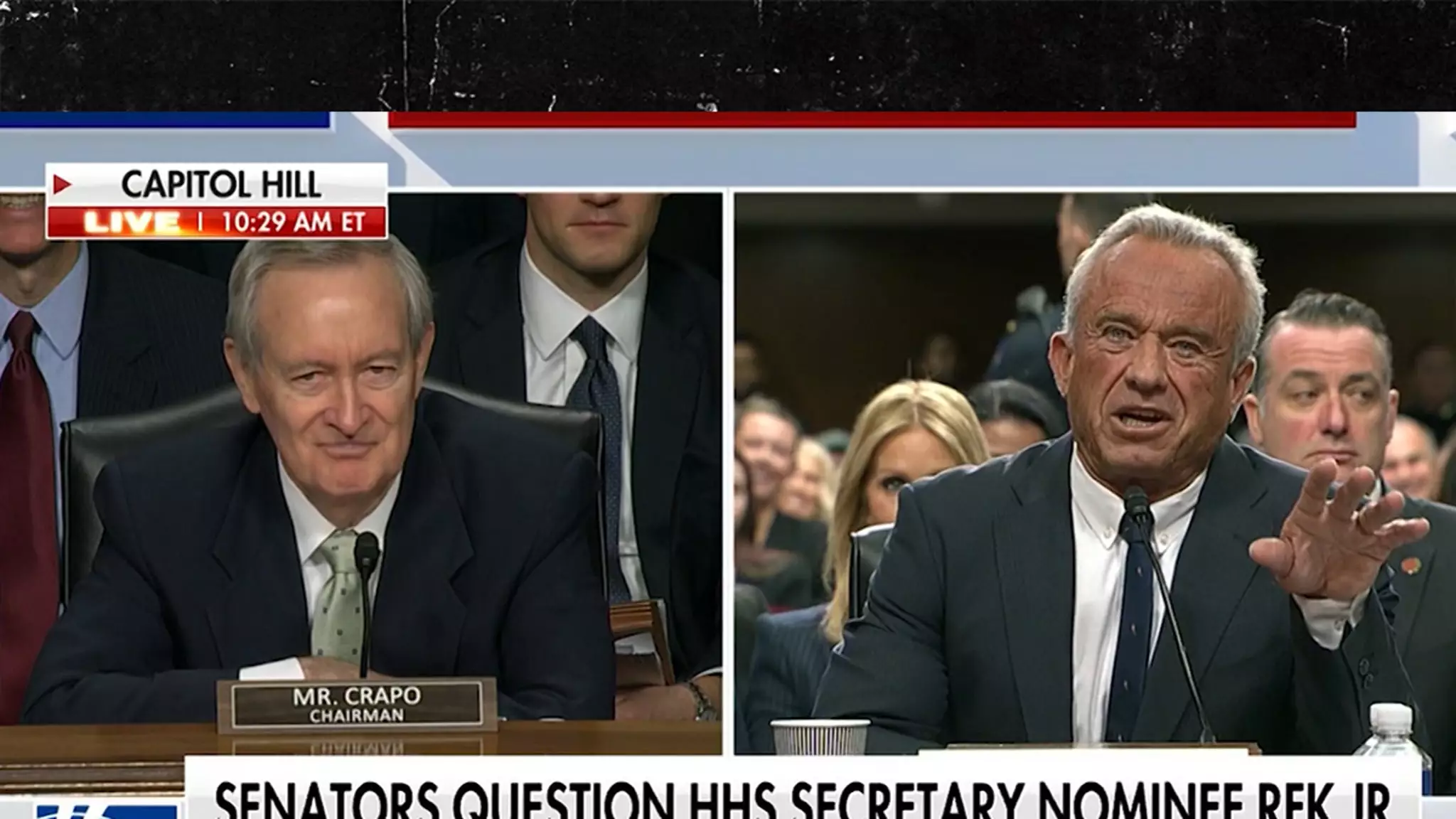The ongoing dialogue about America’s health policies increasingly showcases a tangled web of personal preferences and political agendas. Prominent figures, such as Robert F. Kennedy Jr., have surfed this wave of health conversations, proposing ideas that often clash with mainstream medical advice, notably concerning issues like vaccinations. His recent nomination as Secretary of Health and Human Services under President Donald Trump highlights the delicate balance politicians must strike between promoting public health initiatives and preserving personal liberties and preferences.
Health Initiatives and Popular Culture
Kennedy’s purported campaign slogan, “Make America Healthy Again,” strikes a note that appears to resonate with a multitude of Americans harboring varying interpretations of what health means. During his confirmation hearing, he assured members of the Senate and the public of his unyielding support for widely loved yet often criticized food items, such as McDonald’s cheeseburgers and sugary drinks. This consideration isn’t merely casual banter; it attempts to align health policy reform with cultural staples that many Americans hold dear.
His comments drew laughter and applause–a sign of the complex relationship between diet, lifestyle, and political messaging. However, the humor hinted at a deeper concern: can genuine health policy coexist harmoniously with the fast-food culture that fuels obesity and other health crises in the country?
Conflicting Opinions Within Political Realms
The juxtaposition of Kennedy’s views with those of his prospective boss, Trump, raises eyebrows across the medical community. Trump’s well-documented indulgence in fast food and high-calorie snacks conflicts with the expectations of a health-focused agenda. It illustrates a paradox where health policies that could be beneficial to public well-being seem to be overshadowed by the personal culinary preferences of our leaders. Kennedy’s interactions suggest a reluctant admiration of these dietary choices, underscoring a discomforting truth: policy discussions are increasingly influenced by personal indulgences rather than evidence-based health recommendations.
Moreover, Kennedy’s statements insinuate an uneasy relationship with medical standards, particularly as he shifts the narrative from vaccination skeptics to a supposed advocacy for “safety.” Amidst protests and familial dissent, his hearing became a locus for public scrutiny. Caroline Kennedy’s remarks against her cousin crystallize the growing concern regarding both personal qualifications and the broader implications of appointing someone with views diverging sharply from scientific consensus.
As political drama unfolds and the health industry watches keenly, it’ll be crucial to see whether Kennedy’s tenure, if confirmed, supports or undermines public health initiatives. The central takeaway from this political theater is a cautionary recognition: personal choices and political aspirations must not only coexist but also operate under a framework that prioritizes public welfare over cultural whims. Only time will reveal whether this precarious balancing act can deliver a genuinely healthier America without sacrificing the very food identity that many hold dear. As the situation develops, continuous engagement from both citizens and healthcare professionals will shape the nation’s approach to health.

